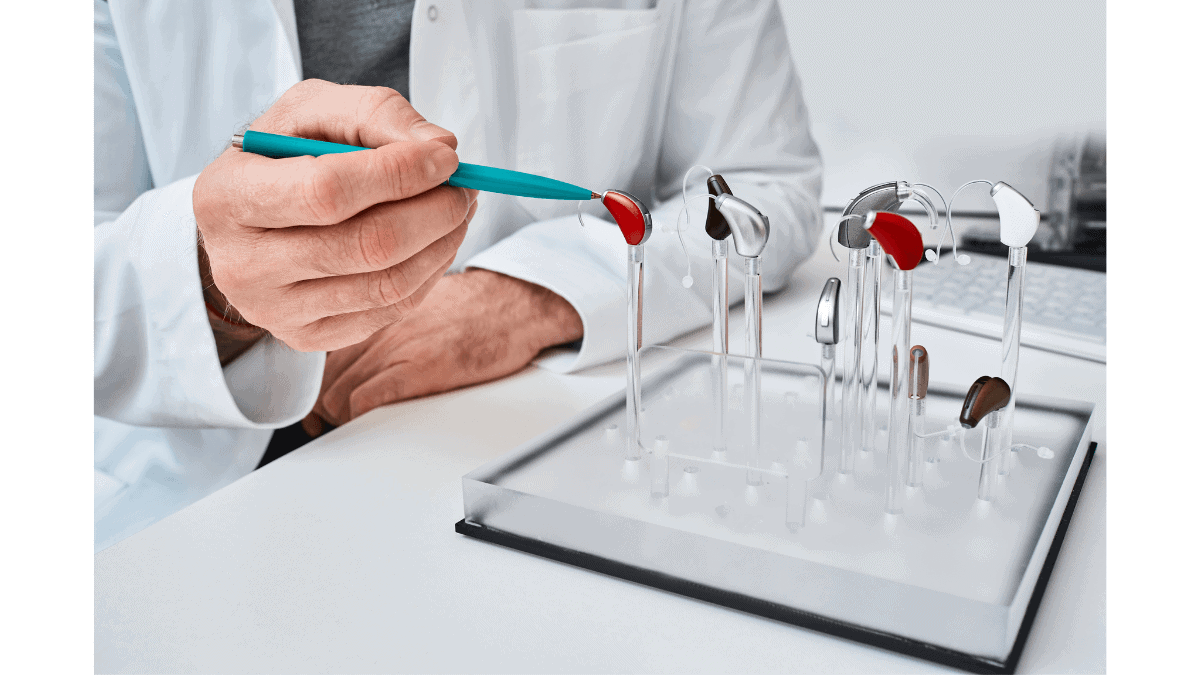Hearing aids are not just electronic devices; they are a lifeline that can connect you with all the sounds around you. These marvels of modern technology have transformed the lives of those with hearing loss, offering a gateway to the vibrant world of sound. However, as with any sophisticated device, hearing aids have a finite lifespan influenced by several factors.
The Average Lifespan of Hearing Aids
While hearing aids are typically designed to last between 3 to 7 years, the actual lifespan of your devices is based on a range of factors. This can include individual usage patterns, maintenance routines, technological evolution, type of hearing aid, and shifts in hearing requirements. Each person will have a different experience with their devices that will impact how long they last.
Is it Time to Upgrade Your Devices?
There are several reasons you may choose to upgrade your hearing aids:
Physical Wear and Tear
- Visible Signs of Deterioration: The physical condition of your hearing aids plays a crucial role in their effectiveness. Visible signs of wear, such as cracks or broken components, may compromise performance. If your hearing aid is falling apart, it’s probably time for new devices.
- Diminished Battery Life: The gradual decline in battery life is a common occurrence as hearing aids age. Upgrading to models with longer-lasting or rechargeable batteries can help you enjoy full power.
Changes in Hearing Needs
- Progressive Hearing Loss: As your hearing loss changes, you may find that your hearing aids are not helping you as much as they used to. Regular hearing evaluations are essential to assess whether your devices align with your current hearing requirements.
- Evolving Lifestyle Challenges: Lifestyle changes, such as transitioning to a noisier work environment or engaging in more social activities, may change how you use your hearing aids. They may not have the programs and features you need, so it might be time for an upgrade.
Technological Changes
- Compatibility: As technology evolves, older hearing aids may struggle to keep pace with newer devices. Compatibility issues with smartphones and other devices can hinder integration. You may need to upgrade your hearing aids to ensure compatibility.
- Outdated Features: Aging hearing aids might lack contemporary features like directional microphones, advanced noise reduction, or wireless connectivity. Upgrading ensures access to advanced features that significantly enhance the overall listening experience.
The Impact of Technological Advancements
One of the pivotal influences in the lifespan of hearing aids is advances in hearing technology. Rapid advancements continually redefine the landscape of hearing aids, introducing features that enhance performance, connectivity, and compatibility. As newer models offer better support you may decide to upgrade your hearing aids to make the most of the latest innovation.
Strategies for Prolonging the Lifespan of Your Hearing Aids
If you want to make the most of your devices and increase the lifespan of your devices, here are some strategies that can help:
- Daily Cleaning: Incorporate a daily cleaning routine to prevent the accumulation of earwax and debris, ensuring optimal hearing aid performance.
- Invest in a Dehumidifier: Utilize hearing aid drying systems to protect against moisture, a common culprit for electronic malfunctions.
- Scheduled Check-ups: Regular check-ups with your hearing health specialist serve as a preventive measure. We’ll identify and address potential issues before they impact the functionality of your hearing aids.
- Be Careful Around Water: Take precautions to shield hearing aids from exposure to water during activities like swimming or showering, safeguarding them against potential damage.
- Cool, Dry Storage: When not in use, store hearing aids in a cool, dry place, shielded from direct sunlight. This can prevent environmental damage.
- Pet and Child Safety: Store hearing aids out of reach of pets and children, minimizing the risk of accidental damage.
How Long Will Your Hearing Aids Last?
The longevity of your hearing aids is based on individual hearing needs, meticulous care, and technological changes. The best way to maintain your hearing aids and do the right thing for your hearing health is regular check-ups with your hearing health specialist.
We’ll help you keep your devices in great condition with professional cleaning, maintenance, and repairs. We’ll also suggest when it might be time for an upgrade. Visit us today for ongoing support.

